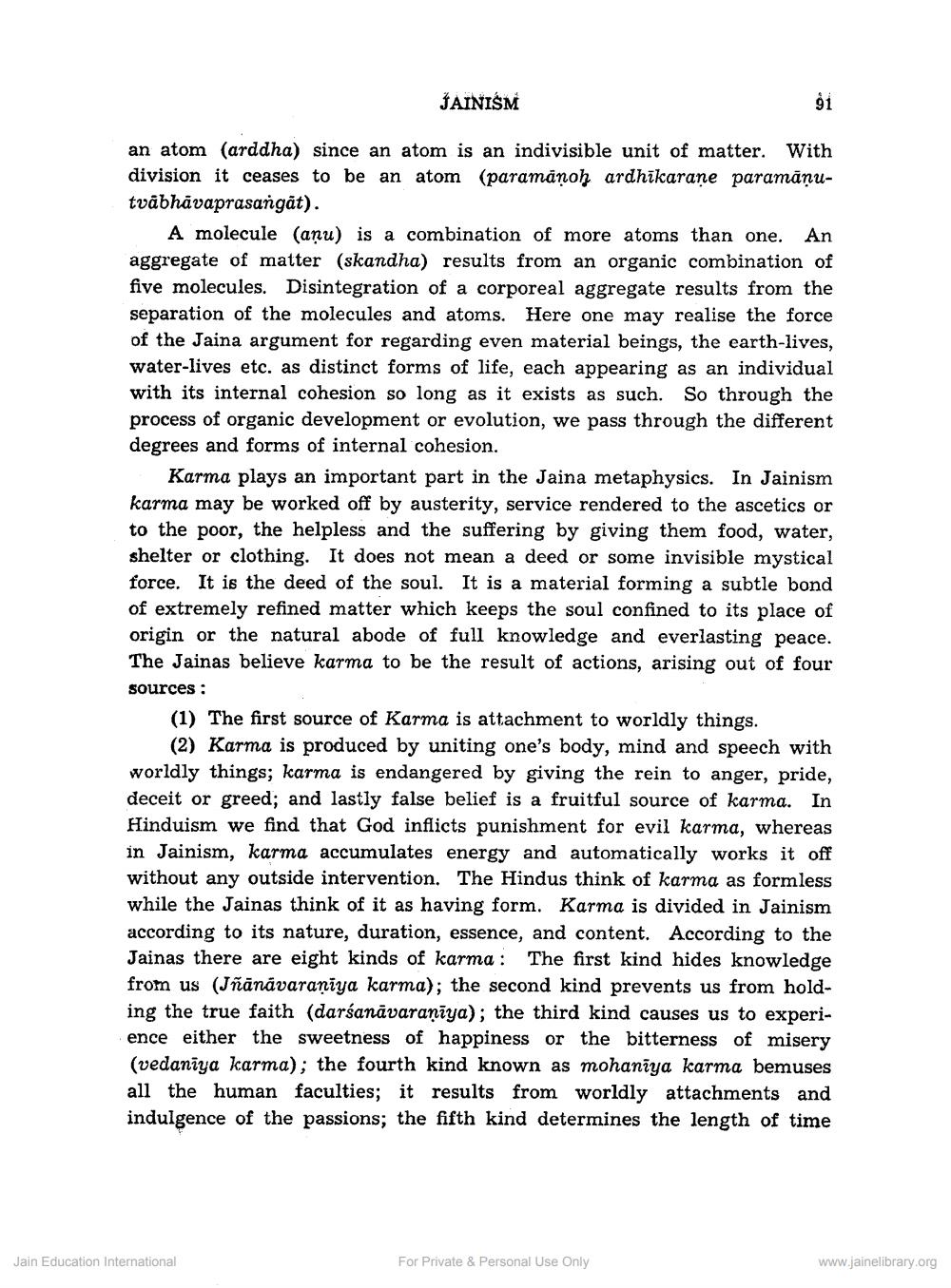________________
JAINISM
an atom (arddha) since an atom is an indivisible unit of matter. With division it ceases to be an atom (paramäņoh ardhikarane paramāņutvåbhāvaprasangất).
A molecule (aņu) is a combination of more atoms than one. An aggregate of matter (skandha) results from an organic combination of five molecules. Disintegration of a corporeal aggregate results from the separation of the molecules and atoms. Here one may realise the force of the Jaina argument for regarding even material beings, the earth-lives, water-lives etc. as distinct forms of life, each appearing as an individual with its internal cohesion so long as it exists as such. So through the process of organic development or evolution, we pass through the different degrees and forms of internal cohesion.
Karma plays an important part in the Jaina metaphysics. In Jainism karma may be worked off by austerity, service rendered to the ascetics or to the poor, the helpless and the suffering by giving them food, water, shelter or clothing. It does not mean a deed or some invisible mystical force. It is the deed of the soul. It is a material forming a subtle bond of extremely refined matter which keeps the soul confined to its place of origin or the natural abode of full knowledge and everlasting peace. The Jainas believe karma to be the result of actions, arising out of four sources :
(1) The first source of Karma is attachment to worldly things.
(2) Karma is produced by uniting one's body, mind and speech with worldly things; karma is endangered by giving the rein to anger, pride, deceit or greed; and lastly false belief is a fruitful source of karma. In Hinduism we find that God inflicts punishment for evil karma, whereas in Jainism, karma accumulates energy and automatically works it off without any outside intervention. The Hindus think of karma as formless while the Jainas think of it as having form. Karma is divided in Jainism according to its nature, duration, essence, and content. According to the Jainas there are eight kinds of karma : The first kind hides knowledge from us (Jñānávaraniya karma); the second kind prevents us from holding the true faith (darśanavaraniya); the third kind causes us to experience either the sweetness of happiness or the bitterness of misery (vedaniya karma); the fourth kind known as mohaniya karma bemuses all the human faculties; it results from worldly attachments and indulgence of the passions; the fifth kind determines the length of time
Jain Education International
For Private & Personal Use Only
www.jainelibrary.org




